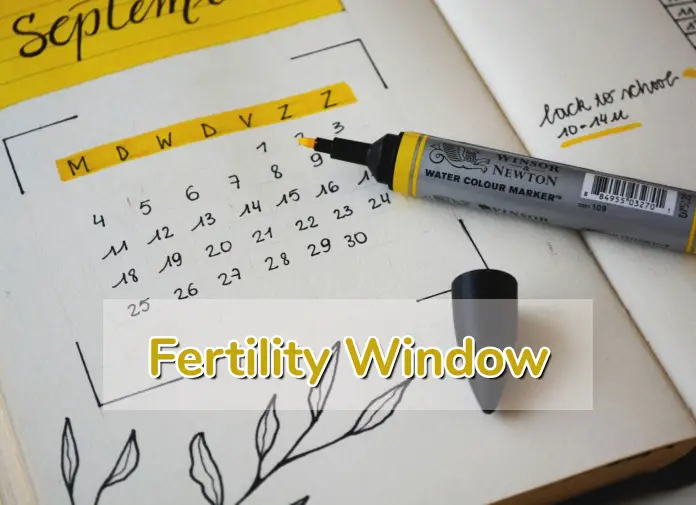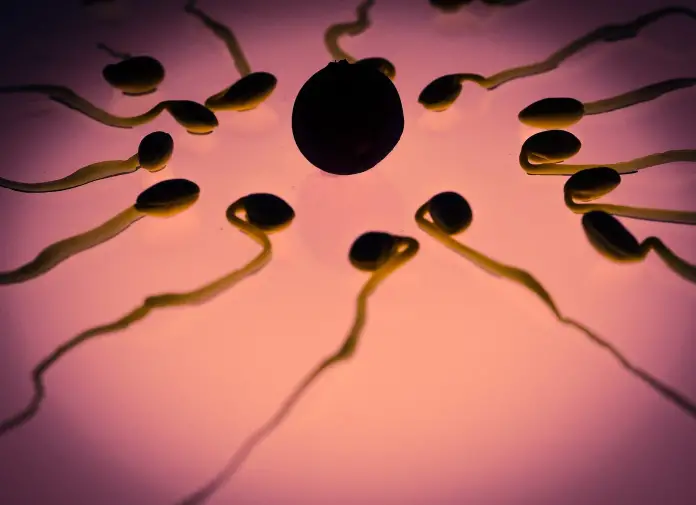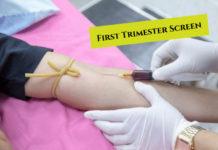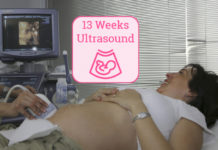What is the fertility window? The fertility period comprises three days before ovulation and the day after it. Factually once 24 hours finish after ovulation, conception cannot happen. Fertility window calculator whether manual or electronic device can track this period. A fertile period calculator collects information about your period date, and BBT readings to predict the fertility window.
Fertile days after a period are two weeks after a period in a normal 28 days cycle. Fertility window symptoms are symptoms before and after ovulation together.
The difference between fertility and ovulation is enough to spend a few minutes reading about it. Most blogs talk of how important ovulation is for getting pregnant. But it is very difficult to pinpoint ovulation. The menstrual cycle keeps fluctuating.
So let’s learn how to find the fertility window! ????

When are you most fertile?
If fertility was restricted to ovulation of an ovum then you’d have a fertility window of 24 hours. But just having 14 fertile days throughout the year won’t lead us to 7 billion so easily!
A woman is most fertile for 5 days every month. Take note that the above line does not mean that one cannot get pregnant when not in the fertile period. The 5 days period of fertility is not because of the ovum. Your period of fertility is the virtue of the lifespan of sperm inside your vagina!
How long does sperm live?
Sperm can live for minutes, hours, days or years. The conditions given determine how long the sperm will survive. How long does it take for sperm to die? Sperm exposed to air can die within a few minutes. Even inside the body, the sperm can die during the travel to the site of fertilization. If the sperm doesn’t enter the vagina then it can die outside the body within minutes as soon as it dries. In the laboratory by cryopreservation sperms for infertility treatments live for years.
How long does sperm live outside the body? Outside the body sperm cannot live for long. When stored in a container at body temperature, sperm can live for some hours.

How long does sperm last?
Once the sperms move inside the cervix into the uterus it can last for 5 days. The survival of sperm inside cervical mucus determines the fertility window period.
How long can sperm survive? Sperm can live for three days ideally but some studies showed it survives up to 5 days.
The fertility window depends on how long can a sperm live inside your body. Unlike the sperms, the egg is only viable for 24 hours. The length and state of the menstrual cycle also influence the success of getting pregnant.
How long does sperm stay inside of you?
The sperm can live for as long as 6 days inside your body. Generally, sperms live for 72 hours but can even survive for 5 days inside the female tract. After coitus, the seminal fluid condenses and then travels up to the uterus. If the egg is present which is only near ovulation then the sperms reaching the fallopian tubes can fertilize the egg. The fusion of sperm and egg takes place in the tube. After fertilization, the zygote moves down the tubes back to the uterus.
How long does sperm live in the uterus?
The sperms are present in a huge number in a healthy seminal fluid. It is not only about how long can sperm live and instead about the total sperm count. Out-of-the total number of sperms per discharge which is 100 million only a few reach the egg.
How long do Sperms stay in the vagina?
Sperms do not stay in the vagina for long and start moving up after unprotected sex. But there are several factors that hamper or support its movement. The cervical fluid has the nutrients to nourish the sperms.
During the fertility window period, the cervical mucus is egg white and stringy which is ideal. It allows the movement of healthy sperms up to the tubes.
Birth control pills alter the composition of the cervical mucus and slow sperm movement. Going to the bathroom after having sex can also reduce the chances of conceiving. Washing using corrosive soaps or the use of sperm jellies further reduces the time sperm lives inside the vagina. How deep the sperms reached during coitus is another factor that influences success while actively trying to conceive.
Sperm life includes the time for which they stay inside the vagina, uterus, and tubes. The fertility window depends not only on are sperm alive but on their motility and health.
How many sperms can fertilize an egg?
Only a single sperm can fertilize an egg. From millions of sperms, only a few reach the tubes and fewer to the egg. The egg has zona pellucida covering it enveloped by corona radiata. The processes coming out of the membrane of the ovum prevent sperms from reaching the egg and allow only one to fertilize it.
When a sperm crosses the membrane of the egg the membrane dissolves and forms a cone of reception. After the entry of one sperm the membrane polarity changes preventing entry of more sperm. This prevents the egg from having an abnormal extra copy of genetic material.
How long does it take sperm to get to the egg?
Healthy sperm can reach an egg within a few hours. A good climax gives a head start to the sperm’s journey up the cervix. The length of the cervix to tubes is about 18cm. Healthy sperms travel at a rate of 10 miles per hour. The sperm can make up the way in 45 minutes. But the sperm motion faces many barriers inside the female body.
How long does the egg wait for sperm? The egg can live for only 24 hours. So after ovulation, the egg waits for fertilization for about a day. After that or before that, sperms wait for the egg or are present in tubes to eventually die.
How do you calculate your fertility window?
Inside a woman’s body, there are about 600000 eggs at the start of the reproductive phase.
Every month nearly 3-30 eggs mature inside an ovary. However, only one of them ripens and comes out of ovary when there is an LH surge. The Luteinizing hormone is responsible for the rupture of the Graffian follicle.
How long does LH surge last? The LH surge lasts for 12 to 24 hours and is the time when ovulation occurs. The LH surge, ovulation, and conception have to be simultaneous events in order to get you pregnant.
How long after LH surge can you pregnant? The egg is viable for 24 hours and fertilization must occur within it. But to calculate fertile days you don’t have to find out those particular 24 hours.
The fertile period is longer than the time for which the LH surge occurs. But even during the fertility window, the peak fertility is for a shorter time.
How long does peak fertility last? Peak fertility is only for 48 hours or less. The term peak fertility refers to the period when having sex will most likely lead to pregnancy.
Abstinence during the peak fertility days prevents conception. Conception does not require you to have sex during peak fertility time. You can have sex earlier and wait for peak fertility window time.
How to improve your chances while trying to conceive (TTC)?
Some facts about the chances of getting pregnant when trying to conceive
- Frequency of baby-making act: Sex every day doesn’t increase your chances of getting pregnant instead it lowers the quality of sperms produced. You must have sex near the day of ovulation rather than just after ovulation. But a woman’s cycle is not timed to the ticking of the clock. Some months you can have a shorter or a longer cycle. So waiting for the temperature to rise up won’t really help to get pregnant. You and your partner must have sex often during the entire week midway your cycle.
- Sex positions for getting pregnant fast: There is no such sex position for getting pregnant that can significantly increase your chances but any position which puts the woman at the bottom is more conducive for conception. Washing your vagina or peeing after sex reduces the seminal fluid inside the vagina. The sperms inside your body move guided by the cervical contractions or fallopian tubes bristles. Climax is not essential for getting pregnant. Mild contractions of the uterus and bristles inside the tube guide the sperms up to the egg. Lying down after sex reduces the effect of gravity against the sperm’s motion.
- Ovulation testing kits: The LH surge can be determined using ovulation test kits. Digital ovulation kits or regular OTKs can help detect ovulation. You have to take the test using your urine. They are accurate and fairly effective in getting pregnant fast.
- Basal thermometer: Charting basal body temperature is a very popular yet tricky practice. Your temperature rises by a degree or half of the day of ovulation. Tracking ovulation using basal body temperature with a basal thermometer requires you to take a reading every day. Before you get out of your bed after waking up your body is at BBT. You must also look for ovulation signs such as a change in cervical mucus and position.
- Ovulation Calculator or sensors: Some latest devices have vaginal and oral sensors that can detect ovulation. An online ovulation calculator requires you to input details about the menstrual cycle. A woman with an irregular period might find it difficult to follow this method.

Can you get pregnant a day before your fertile window?
You cannot get pregnant a day before your fertility window. The fertility window includes the days when you have chances of getting pregnant. Moreover getting pregnant refers to conceiving that happens only after ovulation.
A fertility window is a time when having sex can cause pregnancy. The first day of the fertility window itself has a very low chance of pregnancy. No matter whichever day coitus gets the sperms inside your body pregnancy occurs only after ovulation.
If you mean to ask if you can get pregnant a day before the fertility window for having sex, then the answer is Yes. There can be a change in ovulation date and so you can get pregnant before the fertility window. That is a case of miscalculation or being unaware.
Can you get pregnant during your fertile days?
Certainly one will get pregnant during her fertile days. But even when everything is correct a woman has only a 27-33% chance of getting pregnant every month. With increasing age and other factors such as heavy smoking this probability reduces. The symptoms of ovulation are important in determining the fertile window.









